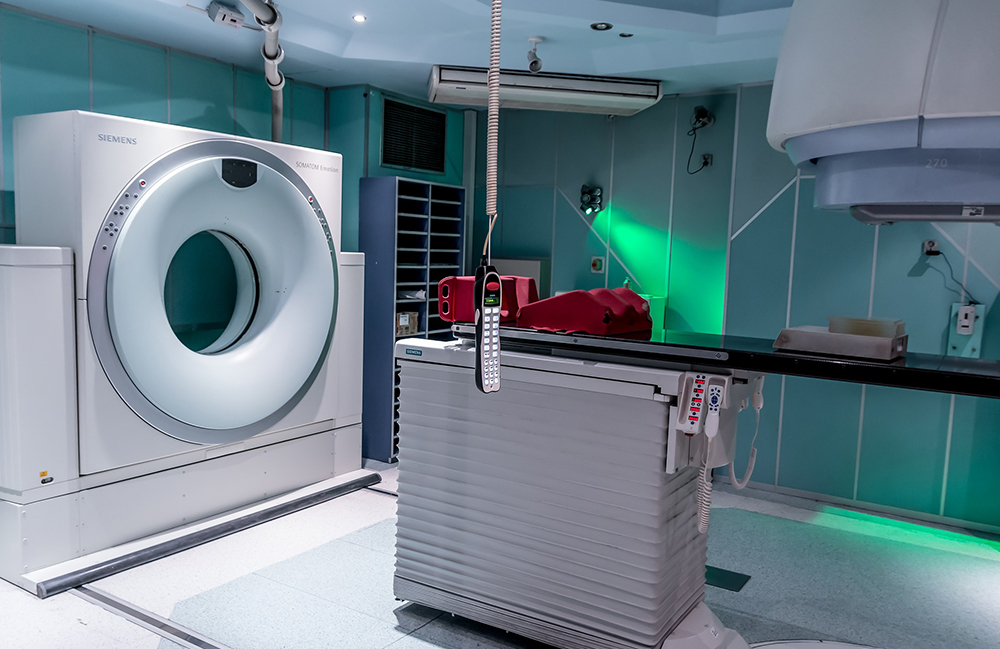X-RAYS, SCANS & TESTS
When you have your appointment with Mr Asopa, he may ask you to undergo further investigations. This could include radiographs (X-rays) and / or an MRI scan. He may occasionally recommend other investigations such as a CT scan or blood tests.

X-rays or tests are needed to further investigate and diagnose a condition or injury. Here’s what to expect:
X-RAY
An X-ray involves exposure to radiation that passes through the body and is picked up by a detector. X-rays pass less easily through bone than cartilage, muscle or fat (called soft tissues). This explains why bone shows up as white on an X-ray and cartilage does not show up. Weight bearing X-rays are useful for establishing the presence and degree of cartilage loss from the hip and knee joints.
The NHS website provides more details about this: https://www.nhs.uk/conditions/x-ray/
MRI SCAN
An MRI scan (Magnetic Resonance Imaging) uses magnetic fields to align protons within your body. A radio wave is applied to the area of the body being studied, and this causes the protons to move out of alignment. When the radio wave is turned off, the protons give out a signal which is picked up by a detector. MRI does not use radiation and is considered safe. Sometimes an MRI scan may not be recommended because you have a certain type of metal implant or pacemaker that is not compatible. People sometimes feel claustrophobic because it involves passing through a tunnel.
The NHS website provides more detail about this: https://www.nhs.uk/conditions/mri-scan/
CT SCAN
A CT scan (Computed Tomography) is used to create images of the body using X-rays. Similar to X-rays, it is good for studying bone (including fractures and alignment). It can also be used to guide certain types of interventional procedures (like injections or aspirating fluid samples. It involves moving through a tunnel like an MRI scan, but it does not surround the whole body so patients feel less claustrophobic compared to an MRI scan.
The NHS website provides more detail about this: https://www.nhs.uk/conditions/ct-scan/
ULTRASOUND SCAN
An ultrasound scan uses high frequency sound waves to produce images. The sonographer, radiologist or other doctor carrying out the ultrasound will apply a gel to the area being studied and then put a probe on top to scan the area. The ultrasound can also be used to guide aspirations from a joint and injections (such as steroid and local anaesthetic) into a joint.
The NHS website provides more detail about this: https://www.nhs.uk/conditions/ultrasound-scan/
The British Institute for radiology also provides further information and links: https://www.bir.org.uk/useful-information/links-for-patients.aspx
OTHER TESTS
Other tests may include blood tests. These can be used to check your full blood count (includes haemoglobin and white cell count) and urea and electrolytes (to test for renal function). The c-reactive protein and erythrocyte sediment rate may also be tested to look for inflammation. Vitamin D levels and rheumatological tests may also be carried out if indicated. Other tests may sometimes be required.
Book your Appointment
with Mr Vipin Asopa
To book an appointment or for any questions or information, please contact Mr Asopa's Medical Secretaries Mandy and Mary by phone or email: